Born in Honolulu in 1948, retired trial lawyer Scott Barker is the author of three books and is now enjoying a ‘twilight career’ helping high school students understand more about the U.S. Constitution. His time at Oxford saw him get married and start a family along his studies. This narrative is excerpted from an interview with the Rhodes Trust on 16 October 2023.
Scott Barker
Nebraska & New College 1970
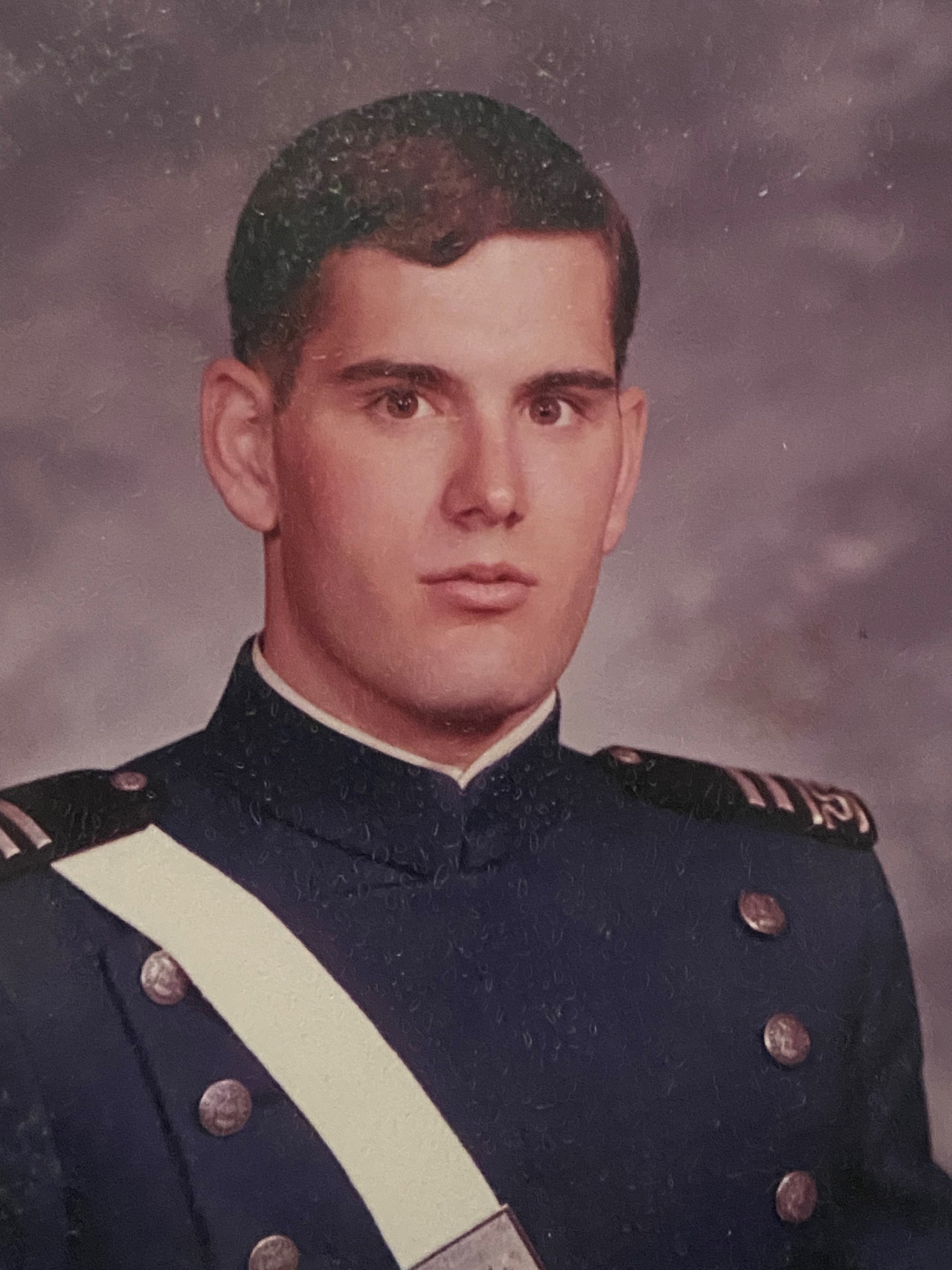
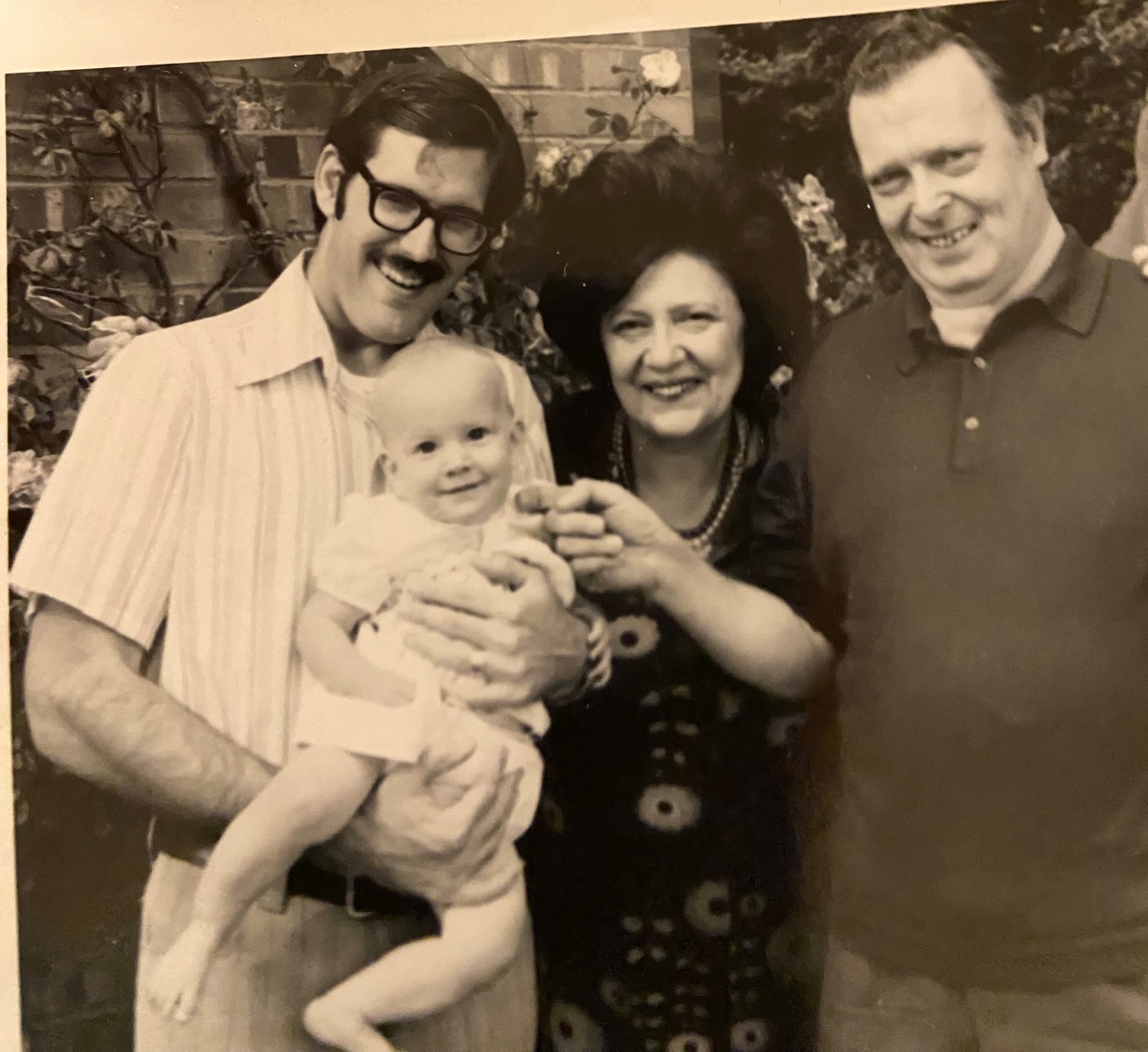
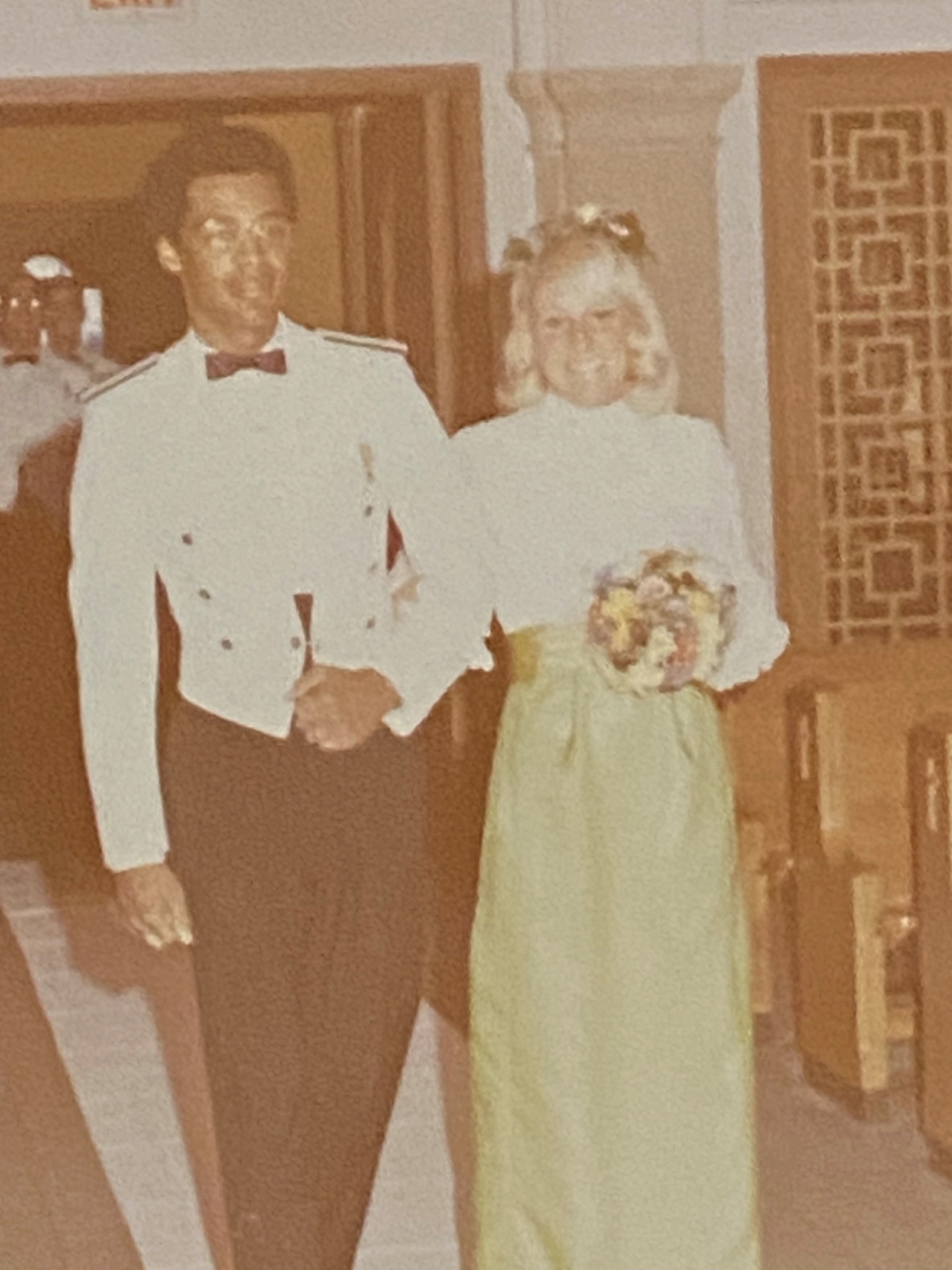

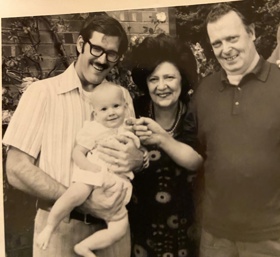
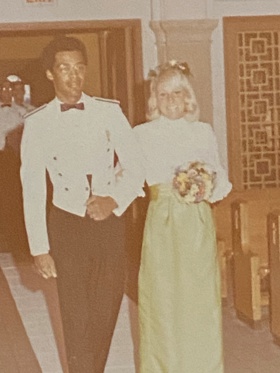
‘A job well done is thanks enough’
Basically, I grew up as an Air Force brat. My father was a pilot, and we lived all over the United States, Canada. What my father did, and what my mother did to support him in his service to the country, had a very profound effect on me in terms of the values I grew up with. Service to others was the highest calling one could have. As my mother used to say, ‘A job well done is thanks enough.’
Neither one of my parents had a college degree, although my dad did get one at night school, while he was still in the service. But they really valued education and they made it clear to my brother and me that they expected us to do well in school and go to college. I have to say, I didn’t really know where I was going to go to college as I went into my senior year. Football was a very big part of my life at that time and I got recruited to play at the Air Force Academy. So, I really didn’t pick the college, the college picked me.
There was a saying, that ‘An Air Force Academy education is like taking a drink out of a fire hydrant.’ It was intense and the academic experience was very enriching. But it was much more than that, because we had military duties and leadership responsibilities, and the camaraderie was incredibly strong. You basically lean on each other. You learn how to do things and do things because they’re the right thing to do, which reinforced what I had learned at home.
On applying for the Rhodes Scholarship
I’m sure a lot of Scholars say this, but I was an accidental Rhodes Scholar. Applying was not on my mind at all, but the Air Force Academy asked if I wanted to be involved in the preparation programme and I said, ‘Well, okay, yes, I guess I would.’ So it wasn’t something that I was consciously striving to do. You see a theme here? I didn’t know where I was going to go to college. I didn’t know I was going to be a Rhodes Scholar. Things just kind of happened to me. I’ve been very fortunate.
In those days, it was a two-stage interview process, plus the personal statement. And it’s been 50 years, but having looked at my personal statement again, I was reminded that I did get a lot of questions based on that in my interview. I don’t think my personal statement was that well written. I do a lot of writing these days, and I’d give it maybe a B+. But the content was good. I mean, it basically identified at the time what I was really interested in doing, which was studying the Soviet Union, because I had taken Russian all four years at the Academy and majored in international relations, and I was in the military during the Cold War. So, it kind of made sense to be focused on the Soviet Union, which I was.
‘I learned how to learn’
There was one other graduate from the Air Force Academy who was also going to Oxford at the same time I was. And both of us had a lot of trepidation about how we were going to be received by our fellow Rhodes Scholars. You have to remember, this was at the height of the Vietnam War, and we were in the military. A lot of the other young men – it was still only men in those days – were from Ivy League universities, which were the hottest hotbed of resistance. And the interesting thing about it is, that it turned out to be a non-issue and that was because these were good people.
I really contrast my first year at Oxford with the four years I spent at the Air Force Academy where, basically, all of my creature comforts were taken care of (including my laundry!). So here I was, all of a sudden, living by myself, which I’d never really done before. But it was a beautiful place to do it. From the Sacher Building in New College, where I lived, I looked over the college gardens, which were just beautiful. So, everything was different (although I do have to say that that also extended to the food, which was terrible!).
I learned a lot at the Air Force Academy, but at Oxford I learned how to learn. Oxford is built around the tutorial, but otherwise, you’re pretty much studying on your own. In many respects, the Oxford experience is self-administered. And you could do nothing and probably get by, or you could do a lot and get a lot out of it, and I did a lot and got a lot out of it. I had much more time, and as result, not only did I work on my Russian – I ended up being in Russian language and literature and transferred into a BPhil in Russian history – but I also spent that first year doing a lot of other reading too (mostly science fiction and William Faulkner, if I remember rightly).
I suppose another way to put it is that you become a dilettante. You get interested in a lot of things, which by the way, I think is one of the unifying characteristics of Rhodes Scholars, in my experience. They’re well-rounded people.
‘Three dreams’
And it was that summer between my first and second years at Oxford that saw the most significant event of my life, which was my marriage to Joan. We had our wedding in Denver in 1971 and we travelled to Oxford together and moved into a small cottage in Forest Hill. It was not an on-campus experience, that’s for sure, but it was wonderful. It was in the countryside and it was just so idyllic. Personally, it was a dream come true. I’d been pining for my love and now I was living with her. And professionally, it probably made me more of a scholar than I was in my first year. And almost every weekend, we would have a group from my cohort come for dinner and we had these long conversations about the state of the world. There was a lot of room for disagreement and for dialogue and we just worked things out, listening and arguing. It was so much fun, and things got even better when our daughter, Jennifer was born the following year.
I like to say that Oxford, for me, was three dreams. The first dream was the first year, when I was in college. The second dream was being a newlywed in this wonderful environment. And the third dream was having a baby.
‘A great gift’
Looking back, I would say that the Rhodes Scholarship and my time at Oxford broadened me. I was very narrow, I think, when I went to Oxford. I’d been a lot of different places and done a lot of different things, but it was all in the military. I arrived at Oxford and it was like a blank canvas and I could paint whatever I wanted on there. I learned about the joy of learning. I learned about cultural things. I learned about the importance of knowing things about other people and appreciating the talents of other people.
At the 120th Anniversary Reunion this summer, Bill Clinton (Arkansas & University 1968) said something that really resonated with me. He said that the Rhodes Scholarship and that time in Oxford it gives you is a great gift, and it’s your responsibility to go out and do something with it. I hope I’ve done that in my work throughout my life. Nowadays, I do a lot of work with the We the People Foundation, which is dedicated to promoting education about the U.S. Constitution in high schools. The young people I work with are amazing. I am distraught over just how much our political class is letting us down now, and it’s easy to despair. But what keeps me going and what motivates me is the knowledge and hope that these very talented young people that I meet will do a better job than we’re doing now.
What I’ve learned about making the world a better place is, it’s not about you. It’s about those whom you help, those whom you lead. I think it was General Omar Bradley who said, ‘The success of a leader is found in those led, not in the leader.’ So that’s the way I’ve tried to live my life. I’ve tried to give people opportunities to be better, to do well. I’m happiest when I see somebody do well.
